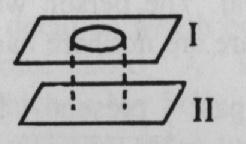 This edition of G. E. Moore’s notes taken at Wittgenstein’s seminal Cambridge lectures in the early 1930s provides, for the first time, an almost verbatim record of those classes. The presentation of the notes is both accessible and faithful to their original manuscripts, and a comprehensive introduction and synoptic table of contents provide the reader with essential contextual information and summaries of the topics in each lecture.
This edition of G. E. Moore’s notes taken at Wittgenstein’s seminal Cambridge lectures in the early 1930s provides, for the first time, an almost verbatim record of those classes. The presentation of the notes is both accessible and faithful to their original manuscripts, and a comprehensive introduction and synoptic table of contents provide the reader with essential contextual information and summaries of the topics in each lecture.
The lectures form an excellent introduction to Wittgenstein’s middle-period thought, covering a broad range of philosophical topics, ranging from core questions in the philosophy of language, mind, logic, and mathematics, to illuminating discussions of subjects on which Wittgenstein says very little elsewhere, including ethics, religion, aesthetics, psychoanalysis, and anthropology.
The volume also includes a 1932 essay by Moore critiquing Wittgenstein’s conception of grammar, together with Wittgenstein’s response. A companion website offers access to images of the entire set of source manuscripts.
 Previously unpublished notes taken by Yorick Smithies at lectures by Ludwig Wittgenstein between 1938 and 1941 at Cambridge University will be published later this year, according to a press release from the Austrian Science Fund FWF.
Previously unpublished notes taken by Yorick Smithies at lectures by Ludwig Wittgenstein between 1938 and 1941 at Cambridge University will be published later this year, according to a press release from the Austrian Science Fund FWF. Wittgenstein’s Lectures, 1932 – 35, Edited by Alice Ambrose, publ. Blackwell, 1979.
Wittgenstein’s Lectures, 1932 – 35, Edited by Alice Ambrose, publ. Blackwell, 1979.